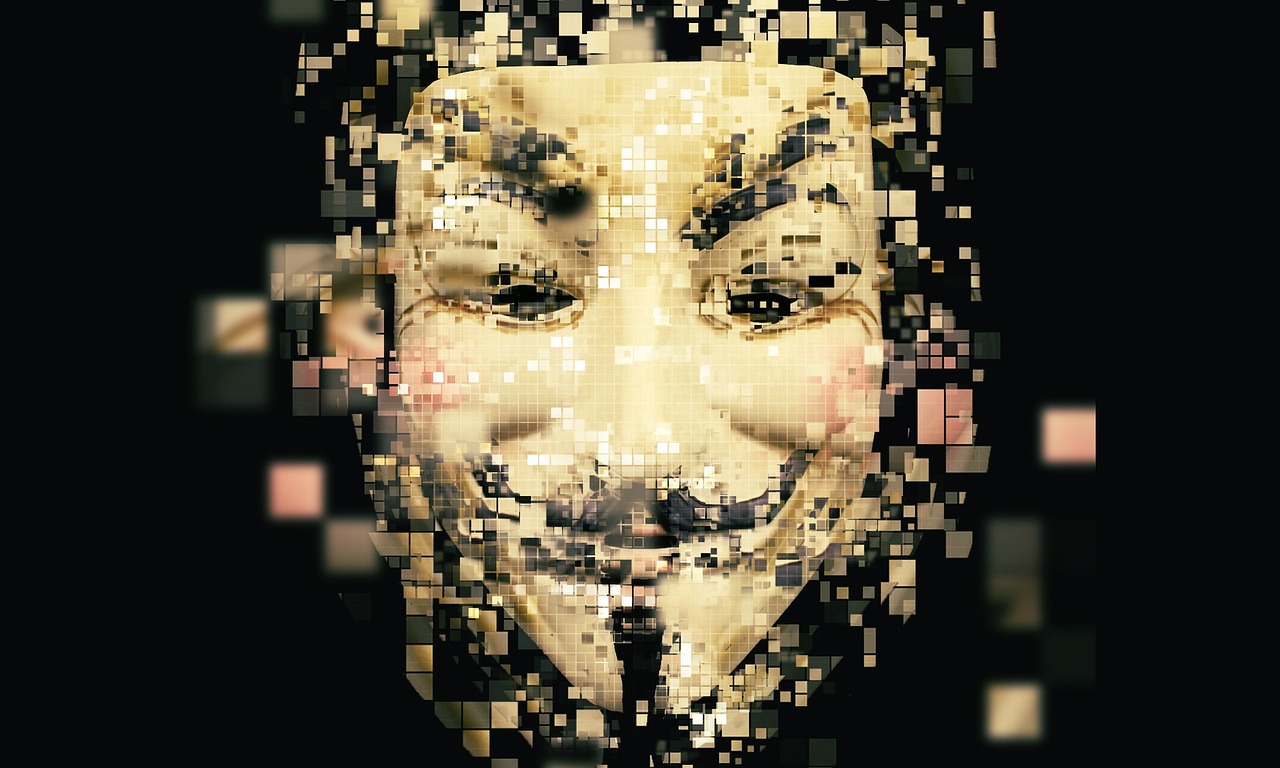Behind The Screen: Online Anonymity And Its Dangers
In today's digital age, the concept of anonymity has become a double-edged sword. On one hand, it offers a sense of freedom—a sanctuary where individuals can express their thoughts without fear of judgment. On the other hand, this very shield can lead to a myriad of dangers that affect not just individuals, but society as a whole. From privacy concerns to the harrowing realities of cyberbullying and the rampant spread of misinformation, the complexities surrounding online anonymity are profound and often troubling. In this article, we will dive deep into these issues, exploring the allure of anonymity and the potential risks that lurk behind the screen.
Why do people flock to the internet under the cloak of anonymity? The answer lies in a mix of psychological factors and the innate human desire for privacy. In a world where every action can be scrutinized, the internet provides a unique platform where individuals can share their thoughts, opinions, and experiences without the constraints of their real-world identities. This sense of liberation can be intoxicating. Imagine being able to voice your most controversial opinions without the fear of social backlash—sounds appealing, right? But this freedom often comes at a hefty price, as it can embolden negative behaviors that would otherwise remain in check.
One of the most alarming consequences of online anonymity is the rise of cyberbullying. The very shield that protects users can also empower them to engage in harmful behaviors, targeting vulnerable individuals with little to no repercussions. Cyberbullying can manifest in various forms, including harassment, impersonation, and the spreading of false rumors. The anonymity of the internet creates a breeding ground for these behaviors, making it easier for bullies to hide behind screens and launch attacks without facing the consequences of their actions. The emotional and psychological impacts on victims can be devastating, leading to severe mental health issues and, in some cases, tragic outcomes.
To truly understand the impact of cyberbullying, we can look at real-life examples that illustrate its devastating effects. For instance, consider the case of a teenager who faced relentless online harassment after a private photo was leaked. The anonymity of the perpetrators allowed them to continue their attacks without fear of being identified. This led to severe anxiety, depression, and ultimately, the victim's decision to withdraw from social interactions altogether. Such instances highlight the urgent need for awareness and action against cyberbullying, as the emotional toll on victims can be catastrophic.
In response to the rising tide of cyberbullying, various jurisdictions have implemented laws aimed at combating this issue. However, the effectiveness of these legal measures often varies. In some regions, laws are in place that make cyberbullying a punishable offense, while in others, the lack of clear regulations leaves victims with little recourse. The challenges in enforcing these laws often stem from the anonymity that the internet provides, making it difficult to track down perpetrators. As a society, we must explore how to strengthen these laws to protect individuals from online harassment.
Understanding the resources available for victims of cyberbullying is crucial. There are numerous support groups, hotlines, and counseling services designed to help those affected. For example, organizations like StopBullying.gov provide valuable resources for victims and their families, offering guidance on how to cope with the emotional aftermath of bullying and how to report incidents effectively. Additionally, schools and communities are increasingly recognizing the importance of fostering safe online environments, implementing programs that educate students about the dangers of cyberbullying and the importance of digital citizenship.
Another significant danger of online anonymity is the spread of misinformation. When users can operate without revealing their identities, the potential for false information to proliferate increases dramatically. Anonymous users can create fake profiles, spread rumors, and manipulate public opinion without facing accountability. This not only skews public discourse but can also lead to real-world consequences, such as influencing elections or inciting violence. The challenge lies in discerning fact from fiction in an age where information is readily available yet often unreliable.
While anonymity can offer a layer of protection, it also raises serious privacy concerns. The balance between the right to remain anonymous and the need to protect individuals from harm is delicate and often contentious. As we navigate this digital landscape, we must consider the implications of our online actions and the information we share. Are we sacrificing our privacy for the sake of anonymity? In many cases, the answer is a resounding yes, as we willingly provide personal data in exchange for the illusion of safety.
The rise of surveillance technologies poses a significant threat to online anonymity. Companies and governments alike collect vast amounts of data, often without users' explicit consent. This data collection can impact not only individual privacy but also the very essence of what it means to be anonymous online. As users, we must be vigilant about our digital footprints and the information we share, understanding that anonymity is not an absolute guarantee of privacy.
So, how can individuals safeguard their personal data while navigating the complexities of online anonymity? Here are some practical tips:
- Use strong, unique passwords for different accounts to minimize the risk of hacking.
- Enable two-factor authentication whenever possible to add an extra layer of security.
- Be cautious about sharing personal information on social media and other platforms.
- Regularly review privacy settings on your accounts to ensure you're aware of what information is being shared.
By taking these steps, individuals can better protect their personal information and navigate the online world with a heightened sense of security.
Q: What are the main dangers of online anonymity?
A: The main dangers include cyberbullying, harassment, the spread of misinformation, and significant privacy concerns.
Q: How can victims of cyberbullying seek help?
A: Victims can reach out to support groups, hotlines, and counseling services that specialize in assisting those affected by online harassment.
Q: Are there laws against cyberbullying?
A: Yes, many jurisdictions have implemented laws to combat cyberbullying, though the effectiveness of these laws can vary.

The Allure of Anonymity
In today's digital landscape, the allure of anonymity can be incredibly enticing. Imagine being able to express your thoughts, opinions, and emotions without the fear of judgment or repercussion. For many, this sense of freedom is like a breath of fresh air, especially in a world where social media often feels like a pressure cooker of expectations. But why do people seek this online cloak of invisibility? Well, several psychological factors come into play.
First and foremost, there’s the desire for freedom of expression. When individuals feel that they can remain anonymous, they are more likely to share their true feelings, engage in discussions about controversial topics, or even seek help for personal issues without the worry of being identified. This can be particularly liberating in societies where certain views are stigmatized or even criminalized. The internet becomes a sanctuary for those who feel marginalized or oppressed, allowing them to find their voice.
Additionally, anonymity can serve as a shield against the harsh realities of the digital world. Many users are wary of how their data is collected and used, and the thought of being tracked can be unsettling. The internet is a vast ocean of information, and just like a fish swimming beneath the surface, individuals often prefer to remain hidden from the prying eyes of corporations and governments. This need for privacy can lead to a sense of security, allowing users to navigate the online realm with a little more confidence.
However, it’s essential to recognize that while anonymity has its perks, it also brings with it a host of challenges. The very features that make anonymity appealing can also foster negative behaviors. When people believe they can act without consequences, they may engage in activities that they would never consider in their everyday lives. This duality creates a complex relationship between users and the anonymity they crave.
To illustrate this point, consider a few reasons why anonymity is sought after:
- Freedom of Speech: The ability to voice opinions without fear of backlash.
- Privacy Protection: Safeguarding personal information from data collectors.
- Support and Community: Finding solace in shared experiences without revealing one’s identity.
As we delve deeper into this topic, it becomes clear that the allure of anonymity is not just about hiding one's identity; it's about seeking a space where individuals can feel safe, express themselves freely, and connect with others. Yet, this same allure can lead to a darker side, where the absence of accountability can result in harmful behaviors like cyberbullying and the spread of misinformation. Understanding this balance is crucial as we navigate the complexities of our online interactions.

Cyberbullying and Harassment
The internet is a vast landscape, teeming with opportunities for connection and expression. However, this same digital realm can become a breeding ground for cyberbullying and harassment. The allure of anonymity often emboldens individuals to engage in behaviors they might shy away from in face-to-face interactions. You might wonder, why does this happen? Well, when people feel shielded by a screen, they can act out without the immediate consequences that come with real-world interactions. This sense of detachment can lead to an alarming increase in instances of online bullying.
Cyberbullying can take many forms, including threatening messages, spreading rumors, and public shaming through social media platforms. The anonymity granted by the internet allows perpetrators to unleash their negativity without fear of being identified. Imagine a crowded room where someone can throw insults from the back without anyone knowing who they are; that’s the kind of chaos anonymity can create online. Victims often feel trapped, unable to escape the barrage of negativity that can invade their daily lives.
The emotional and psychological effects of cyberbullying can be devastating. Victims may experience anxiety, depression, and a profound sense of isolation. In many cases, the harassment can escalate to the point where it affects their academic performance, social life, and overall well-being. It’s not just about hurt feelings; the ramifications can be life-altering. For instance, studies have shown that victims of cyberbullying are at a higher risk for suicidal thoughts and actions, making this a serious public health concern.
To truly understand the impact of cyberbullying, we can look at real-life examples. Take the case of Amanda Todd, a young girl who faced relentless online harassment after being blackmailed with explicit photos. Her tragic story highlights the profound psychological toll that cyberbullying can take. Despite her efforts to seek help and change schools, the harassment followed her online, leading to her untimely death. Such cases serve as a stark reminder of the urgent need for effective measures to combat this issue.
In response to the growing prevalence of cyberbullying, various jurisdictions have started implementing laws aimed at curbing this behavior. However, the effectiveness of these laws is often debated. Some argue that existing laws are too vague, making it difficult to prosecute offenders, while others believe that the penalties are not severe enough to deter would-be bullies. The challenge lies in balancing the need for free speech with the necessity of protecting individuals from harassment. As society navigates this complex landscape, ongoing discussions about legal frameworks are crucial.
Understanding the resources available for victims of cyberbullying is essential. Numerous support groups, hotlines, and counseling services exist to help those affected. For example, organizations like StopBullying.gov provide valuable information and support for victims and their families. Additionally, schools and communities are increasingly recognizing the importance of providing safe spaces for victims to share their experiences and seek help. It’s vital for victims to know they are not alone and that there are people and resources available to support them.
In conclusion, while the internet can foster incredible connections and creativity, it also harbors darker elements that can lead to cyberbullying and harassment. Recognizing the signs and understanding the impact is the first step toward creating a safer online environment for everyone.
- What is cyberbullying? Cyberbullying is the use of digital platforms to harass, threaten, or humiliate someone.
- How can I report cyberbullying? Most social media platforms have reporting features. You can also contact local law enforcement or seek help from anti-bullying organizations.
- What are the signs of someone being bullied online? Signs may include changes in mood, withdrawal from social activities, and a sudden drop in academic performance.
- What can I do to support a friend who is being bullied online? Listen to them, encourage them to seek help, and remind them that they are not alone.

Case Studies of Cyberbullying
The impact of cyberbullying extends far beyond the screen, leaving devastating emotional scars on its victims. To truly understand the weight of this issue, let's delve into some poignant case studies that highlight the real-life consequences of online harassment. These stories serve as a reminder that behind every username, there is a person grappling with pain and isolation.
One notable case is that of Amanda Todd, a Canadian teenager who became a tragic symbol of the effects of cyberbullying. After being blackmailed by an anonymous user who threatened to share explicit photos, Amanda faced relentless harassment from her peers. Despite her attempts to reach out for help through social media and even a YouTube video detailing her struggles, the bullying persisted. Tragically, Amanda took her own life in 2012, highlighting the urgent need for awareness and intervention in cases of online harassment.
Another case that shook the online community was that of Tyler Clementi, a college student who experienced severe cyberbullying after his sexual orientation was exposed without his consent. His roommate secretly recorded Tyler's intimate encounter and shared it online, leading to a wave of humiliation and emotional distress. Tyler's story ended in tragedy when he chose to end his life in 2010, sparking nationwide discussions about privacy, consent, and the consequences of cyberbullying.
These examples underscore the emotional toll that cyberbullying can take. Victims often experience feelings of isolation, anxiety, and depression. According to a survey conducted by the Pew Research Center, nearly 59% of U.S. teens have experienced some form of cyberbullying. The anonymity provided by the internet can embolden perpetrators, allowing them to act without fear of repercussions. This leads to a toxic environment where victims feel trapped, unable to escape the harassment.
Additionally, the psychological effects of cyberbullying can manifest in various ways. Victims may develop low self-esteem, experience changes in sleep patterns, or even struggle with academic performance. The sense of helplessness can be overwhelming, as many victims feel that reporting the abuse may only escalate the situation. This is compounded by the fact that many platforms lack effective measures to protect users from harassment.
To further illustrate the widespread nature of this issue, here are some statistics regarding cyberbullying:
| Statistic | Percentage |
|---|---|
| Teens who have experienced cyberbullying | 59% |
| Teens who say they have witnessed cyberbullying | 90% |
| Victims who reported feeling depressed | 60% |
| Teens who have considered suicide due to cyberbullying | 30% |
These statistics reveal a troubling trend that cannot be ignored. The emotional scars left by cyberbullying are real and can lead to tragic outcomes. It is crucial for society to address this issue through education, open conversations, and supportive resources for victims. By sharing these stories and statistics, we can foster a deeper understanding of the effects of cyberbullying and work towards creating a safer online environment for everyone.
- What is cyberbullying? Cyberbullying is the act of harassing, threatening, or humiliating someone through digital platforms, such as social media, text messages, or online forums.
- How can I recognize if someone is being cyberbullied? Signs include changes in behavior, withdrawal from social interactions, changes in academic performance, and unexplained emotional distress.
- What should I do if I witness cyberbullying? It’s important to report the behavior to the platform, support the victim, and encourage them to seek help from trusted adults or professionals.
- Are there laws against cyberbullying? Yes, many jurisdictions have implemented laws aimed at combating cyberbullying, though the effectiveness of these laws can vary.

Legal Responses to Cyberbullying
The rise of cyberbullying has prompted many jurisdictions to take legal action to protect victims and hold perpetrators accountable. Laws vary significantly across different regions, reflecting cultural attitudes towards online behavior and the challenges inherent in regulating digital interactions. Some countries have enacted specific legislation targeting cyberbullying, while others have adapted existing laws on harassment and defamation to address online abuse.
For instance, in the United States, several states have implemented anti-bullying laws that include provisions for cyberbullying. These laws often require schools to develop policies that address bullying behavior that occurs through electronic means. This legal framework aims to create a safer environment for students, but the effectiveness of these laws can vary widely. Many argue that enforcement is a significant challenge, as it can be difficult to trace anonymous online behavior back to the individuals responsible.
In contrast, countries like the United Kingdom have taken a different approach. The UK has laws against harassment that can be applied to online bullying, allowing victims to seek legal recourse if they are targeted. However, the burden of proof often falls on the victim, which can discourage many from pursuing legal action. This situation raises an important question: Are the current legal measures enough to deter cyberbullying? The answer is complex, as it involves not only legal frameworks but also societal attitudes towards online behavior.
Moreover, the international nature of the internet complicates legal responses to cyberbullying. Anonymity allows individuals to operate across borders, making it challenging for law enforcement to take action. Victims may find themselves in a situation where the perpetrator resides in a different country, leading to jurisdictional issues. As a result, there is a growing call for international cooperation to address cyberbullying effectively.
In light of these challenges, some experts advocate for a multi-faceted approach that combines legal responses with educational initiatives. Teaching young people about the consequences of their online behavior, promoting empathy, and fostering a culture of respect can serve as powerful tools in combatting cyberbullying. Legal measures alone may not suffice; they must be accompanied by societal change.
In summary, while there are legal responses to cyberbullying, the effectiveness of these measures is often limited by various factors, including enforcement challenges and the need for international cooperation. As the digital landscape continues to evolve, so too must our approaches to legislation and education surrounding online behavior.
- What is cyberbullying? Cyberbullying refers to the use of electronic communication to bully, harass, or intimidate individuals, often through social media, text messages, or online forums.
- Are there specific laws against cyberbullying? Yes, many jurisdictions have enacted laws to address cyberbullying, although the specifics can vary widely.
- What can victims do if they are being cyberbullied? Victims should document the harassment, report it to the relevant authorities or platforms, and seek support from trusted individuals or professionals.
- How can society help combat cyberbullying? Education, awareness campaigns, and fostering a culture of respect and empathy online can significantly contribute to reducing cyberbullying instances.

Support Systems for Victims
In the digital age, where the anonymity of the internet can often lead to devastating experiences for victims of cyberbullying, it is crucial to have robust support systems in place. These systems can provide the necessary resources and emotional backing that individuals need to navigate the aftermath of online harassment. Victims often feel isolated and helpless, but knowing that support is available can make a significant difference in their recovery journey.
Support systems for victims of cyberbullying typically encompass a variety of resources, including support groups, hotlines, and counseling services. These services are designed to offer not only emotional support but also practical advice on how to cope with the effects of bullying. For instance, support groups allow victims to share their experiences in a safe environment, fostering a sense of community and understanding among individuals who have faced similar challenges.
Additionally, many organizations have established hotlines that victims can call for immediate assistance. These hotlines often provide trained counselors who can offer guidance, resources, and a listening ear. The anonymity of these services can be particularly comforting for victims who may be hesitant to seek help in person.
Moreover, educational institutions and workplaces are increasingly recognizing the importance of having support systems in place. Many schools now have dedicated counselors trained to address issues of cyberbullying and can provide students with the tools they need to cope. Similarly, workplaces often have employee assistance programs (EAPs) that offer confidential counseling and support services to employees affected by harassment.
For those seeking online resources, numerous websites provide information on how to deal with cyberbullying. These platforms often feature forums where victims can connect and share strategies for coping with their experiences. Below is a brief overview of some notable support systems:
| Support System | Description | Contact Information |
|---|---|---|
| National Bullying Prevention Center | Offers resources and support for victims of bullying. | Website |
| Crisis Text Line | Provides 24/7 support via text messaging. | Text "HELLO" to 741741 |
| StopBullying.gov | Government resource for information on bullying prevention. | Website |
Ultimately, the key to combating the effects of cyberbullying lies in raising awareness and ensuring that victims know where to turn for help. By fostering a culture of support and understanding, we can empower individuals to reclaim their sense of safety and well-being in the online world.
Q: What should I do if I am a victim of cyberbullying?
A: If you are experiencing cyberbullying, it's essential to document everything, report the abuse to the platform, and seek support from trusted friends, family, or professionals.
Q: Are there legal protections against cyberbullying?
A: Yes, many jurisdictions have laws that specifically address cyberbullying. It's advisable to familiarize yourself with the laws in your area and consider consulting a legal professional if necessary.
Q: How can I help someone who is being bullied online?
A: Listen to them, offer emotional support, encourage them to report the bullying, and help them find resources or professional support if needed.

Online Misinformation and Anonymity
In the vast digital landscape, the cloak of anonymity can be both a shield and a sword. While it provides users with the freedom to express their thoughts without fear of repercussions, it also creates a fertile ground for the spread of misinformation. The very essence of anonymity encourages individuals to share unverified information, often without the slightest regard for its accuracy. This phenomenon not only distorts public perception but can also lead to real-world consequences.
Imagine a world where anyone can say anything without accountability. This is the reality of the internet today. Anonymous users can easily propagate false narratives, conspiracy theories, and misleading information, often with little to no pushback. This unchecked flow of information can mislead individuals, shape opinions, and even influence major societal events. For instance, during critical events like elections or public health crises, misinformation can spread like wildfire, creating confusion and panic among the populace.
One of the most alarming aspects of online misinformation is how it can be weaponized. Anonymity allows malicious actors to create false accounts and spread damaging content without facing consequences. These accounts can be used to:
- Manipulate public opinion on social media platforms
- Disrupt political processes by spreading false information
- Undermine trust in legitimate news sources
The consequences of this misinformation can be dire. Consider the impact of false claims about vaccines, which have led to hesitancy and a resurgence of preventable diseases. Or think about how misleading information during elections can sway voters, potentially altering the course of history. The anonymity that allows for such reckless behavior poses a significant threat to informed decision-making in society.
Moreover, the spread of misinformation often leads to a cyclical effect. As more people engage with false information, it gains traction, leading others to believe it as fact. This creates a snowball effect, where misinformation becomes entrenched in public discourse. The challenge lies not only in combating these false narratives but also in fostering a culture of critical thinking and media literacy among internet users. It's crucial for individuals to question the sources of their information and verify facts before sharing them.
As we navigate this complex landscape, it's essential to recognize the role of technology in both facilitating and combating misinformation. Social media platforms are increasingly aware of their responsibility to curb the spread of false information. Many have implemented measures such as fact-checking, flagging misleading posts, and promoting credible sources. However, the effectiveness of these measures is often debated, especially when considering the sheer volume of content generated daily.
To combat the twin challenges of anonymity and misinformation, a multi-faceted approach is required. This includes:
- Enhanced education on digital literacy
- Stricter regulations on anonymous accounts
- Increased transparency from social media platforms about their algorithms
Ultimately, while anonymity can empower individuals to express themselves freely, it also poses significant risks to the integrity of information in our society. Striking a balance between protecting personal privacy and ensuring the accuracy of information is vital for the health of our digital ecosystem. As users, we must remain vigilant and responsible in our online interactions, understanding that our choices can have far-reaching implications.
- What is online misinformation? Online misinformation refers to false or misleading information that is spread through digital channels, often without verification.
- How does anonymity contribute to misinformation? Anonymity allows individuals to share unverified information without accountability, leading to the rapid spread of false narratives.
- What can be done to combat misinformation? Strategies include promoting digital literacy, enforcing stricter regulations on anonymous accounts, and increasing transparency from social media platforms.

Privacy Concerns
In our increasingly digital world, the concept of anonymity is often a double-edged sword. On one hand, it provides a cloak of security that allows users to express themselves freely without fear of judgment or backlash. On the other hand, this very anonymity can lead to significant that affect both individuals and society at large. As we navigate the vast expanse of the internet, understanding the balance between anonymity and the right to privacy becomes crucial.
Many users may not realize that while they think they are hidden behind a veil of anonymity, their actions are often still traceable. This traceability raises alarming questions about data security and personal privacy. For instance, how much of our personal information is being collected without our consent? In a world where data is the new oil, companies are constantly gathering information to create detailed profiles of users, often without their knowledge. This can lead to a sense of vulnerability as individuals grapple with the reality that their online behaviors are being monitored and analyzed.
Moreover, the rise of surveillance technologies has made it easier for both corporations and governments to track online activities. From cookies that follow our browsing habits to sophisticated algorithms that predict our behavior, the line between anonymity and privacy is becoming increasingly blurred. The question then arises: how do we protect our personal information while still enjoying the benefits of online anonymity? Here are a few strategies that can help:
- Use Strong Passwords: Always create complex passwords and change them regularly to prevent unauthorized access.
- Enable Two-Factor Authentication: This adds an extra layer of security, making it harder for hackers to access your accounts.
- Be Cautious with Personal Information: Limit the amount of personal information you share on social media and other platforms.
- Utilize VPNs: A Virtual Private Network can help mask your IP address and encrypt your online activity.
While these strategies can enhance your online privacy, they are not foolproof. The reality is that as technology evolves, so do the methods of data collection and surveillance. For instance, many applications and websites have privacy policies that users often overlook. These documents outline how your data will be used, shared, and stored. Reading these policies can be a daunting task, but it’s essential for understanding your rights and the potential risks involved.
Furthermore, the ethical implications of data collection cannot be ignored. Are companies prioritizing profit over the privacy of their users? This question becomes even more pressing as we consider the potential for misuse of personal information. From targeted advertising to identity theft, the consequences of lax privacy measures can be severe. Ultimately, it’s a balancing act: how do we enjoy the benefits of online anonymity while ensuring that our personal information remains secure?
In conclusion, as we navigate the complex landscape of online anonymity, it’s vital to remain vigilant about our privacy. The allure of being anonymous can sometimes cloud our judgment regarding the potential dangers lurking in the shadows of the internet. By taking proactive steps to safeguard our personal information and being aware of the implications of our online actions, we can enjoy the freedom of anonymity while protecting our privacy.
- What are the main privacy concerns related to online anonymity? Privacy concerns include data collection, surveillance, and the potential for misuse of personal information.
- How can I protect my personal information online? Use strong passwords, enable two-factor authentication, and be cautious about the information you share.
- Are privacy policies important? Yes, they outline how your data will be used and can help you understand your rights.
- Can anonymity lead to cyberbullying? Yes, it can create an environment where individuals feel emboldened to harass others without fear of repercussions.

Data Collection and Surveillance
In today's digital landscape, the concept of anonymity often feels like a double-edged sword. While it can provide a layer of protection for users, it simultaneously invites a range of privacy concerns, particularly when it comes to data collection and surveillance. The rise of technology has made it easier than ever for companies and governments to track our online activities, creating an environment where true anonymity is increasingly difficult to achieve.
Imagine walking through a crowded marketplace, your every move documented by hidden cameras and microphones. This is akin to what happens online, where our digital footprints are meticulously recorded. From social media interactions to online shopping habits, every click can be tracked and analyzed. But why is this data so valuable? It’s simple: data is power. Businesses leverage this information to tailor advertisements, predict consumer behavior, and even influence political campaigns.
As we navigate the web, we often unknowingly surrender our personal information. Here are some common ways data collection occurs:
- Cookies: These small files track your online behavior, allowing websites to remember your preferences and enhance user experience.
- Location Tracking: Many apps request access to your location, which can be used to gather insights about your movements and habits.
- Social Media Data: Platforms like Facebook and Instagram collect vast amounts of data about user interactions, preferences, and connections.
While some users embrace the convenience of personalized experiences, they may not fully grasp the implications of their data being collected. This leads us to a critical question: How much of your privacy are you willing to sacrifice for convenience? The reality is that many individuals are unaware of the extent to which their data is being harvested and sold, often leading to a false sense of security regarding their anonymity.
Moreover, surveillance technologies are advancing at an alarming rate. Governments and corporations are deploying sophisticated tools that can analyze vast amounts of data in real-time. For instance, facial recognition technology is becoming commonplace, raising ethical concerns about consent and the potential for misuse. The balance between security and privacy is increasingly precarious, and individuals must navigate this landscape with caution.
To illustrate the impact of data collection and surveillance, consider the following table that highlights the growing concerns:
| Concern | Description | Potential Impact |
|---|---|---|
| Loss of Privacy | Increased tracking of online behavior | Feeling of being constantly monitored |
| Data Breaches | Unauthorized access to personal information | Identity theft and financial loss |
| Manipulation | Use of personal data for targeted advertising | Influence on consumer behavior and voting |
Ultimately, protecting your personal information in an era of rampant data collection requires vigilance. Users should consider implementing strategies such as using VPNs, adjusting privacy settings on social media, and being selective about the information they share online. Remember, while anonymity can offer a comforting veil, it’s crucial to be aware of the lurking dangers that come with it.
- What is data collection? Data collection refers to the process of gathering and analyzing information about individuals, often for commercial or research purposes.
- How can I protect my privacy online? Use strong passwords, enable two-factor authentication, and regularly review privacy settings on your accounts.
- Is online anonymity completely safe? No, while it can provide some protection, there are still risks associated with data collection and surveillance.
- What are the legal implications of data surveillance? Laws vary by country, but many regions are implementing stricter regulations to protect user privacy and data security.

Protecting Personal Information
In today's digital age, where anonymity can be both a shield and a sword, protecting your personal information has become more crucial than ever. The internet is like a vast ocean, and while it can offer the freedom to explore and express oneself, it can also be a treacherous place where personal data is at risk. So, how can you navigate these waters safely? Let’s dive into some practical strategies that can help you safeguard your identity while enjoying the benefits of online anonymity.
Firstly, it’s essential to understand the importance of using strong, unique passwords. Think of your password as the key to your digital house. If it’s weak or easily guessed, you might as well leave the door wide open. To enhance your security, consider using a password manager, which can generate and store complex passwords for you. This way, you won’t have to remember every single password, reducing the risk of using the same one across different sites.
Furthermore, enabling two-factor authentication (2FA) is a game-changer. It adds an extra layer of security by requiring not just your password but also a second piece of information, typically a code sent to your mobile device. This means that even if someone manages to get your password, they would still need that second piece of information to access your account. It's like having a double lock on your door—much harder for intruders to get in!
Another critical aspect of protecting your personal information is being mindful of the information you share online. Social media platforms can be a double-edged sword; they allow you to connect with others but can also expose you to risks. Be selective about what you post and consider adjusting your privacy settings to limit who can see your information. For instance, instead of sharing your location in real-time, you might want to wait until after an event to post about it. This simple change can help keep your whereabouts private.
Additionally, using a Virtual Private Network (VPN) can significantly enhance your online privacy. A VPN encrypts your internet connection, making it much harder for anyone to track your online activities or steal your data. This is especially important when using public Wi-Fi networks, which are notoriously insecure. Think of a VPN as a secure tunnel through which your data travels, protecting it from prying eyes.
Lastly, regularly reviewing your online accounts and the data associated with them is vital. Many services allow you to download a copy of your data, giving you insight into what information is stored and how it’s being used. If you find something concerning, don’t hesitate to delete accounts you no longer use or adjust privacy settings to limit data sharing. Remember, the less information you have floating around, the less vulnerable you are.
In conclusion, while the allure of online anonymity is undeniable, it comes with its own set of challenges. By implementing these strategies, you can protect your personal information and enjoy a safer online experience. After all, in a world where data is the new gold, safeguarding your personal information is not just wise; it’s essential.
- What is the best way to create a strong password? A strong password should be at least 12 characters long, include a mix of upper and lower case letters, numbers, and special symbols.
- Why is two-factor authentication important? It adds an extra layer of security, making it more difficult for unauthorized users to access your accounts.
- How can I tell if my personal information has been compromised? Regularly check your accounts for unusual activity, and consider using services that alert you if your data appears in data breaches.
- Is using a VPN legal? Yes, using a VPN is legal in most countries, but be sure to check local laws to ensure compliance.
Frequently Asked Questions
- What is online anonymity?
Online anonymity refers to the ability of individuals to use the internet without revealing their true identity. It allows users to interact, share opinions, or express themselves freely without the fear of being identified or judged.
- Why do people seek anonymity online?
Many people seek anonymity for various reasons, including the desire for privacy, freedom of expression, and protection from harassment. It can provide a safe space for individuals to voice their opinions, especially on sensitive topics.
- How does anonymity contribute to cyberbullying?
Anonymity can lead to increased instances of cyberbullying because it allows individuals to harass others without facing immediate consequences. This lack of accountability can embolden bullies, making it easier for them to target victims.
- What are the effects of cyberbullying on victims?
The effects of cyberbullying can be devastating. Victims may experience anxiety, depression, and a decline in self-esteem. In severe cases, it can lead to long-term psychological issues or even tragic outcomes.
- Are there laws against cyberbullying?
Yes, many jurisdictions have implemented laws to combat cyberbullying. However, the effectiveness of these laws varies, and enforcement can be challenging due to the anonymous nature of online interactions.
- What support systems are available for victims of cyberbullying?
Victims of cyberbullying can access various support systems, including hotlines, counseling services, and support groups. These resources can provide emotional support and guidance for those affected.
- What role does anonymity play in the spread of misinformation?
Anonymity can facilitate the spread of misinformation as individuals can share false information without fear of being held accountable. This can distort public discourse and lead to confusion and mistrust among users.
- What privacy concerns are associated with online anonymity?
While anonymity can protect users, it also raises privacy concerns. Users may unknowingly share personal information that can be exploited, and the rise of surveillance technologies can threaten their anonymity.
- How can individuals protect their personal information online?
Individuals can protect their personal information by using strong passwords, being cautious about sharing details on social media, and utilizing privacy settings on various platforms. It's also wise to use VPNs and other tools to enhance online security.



















